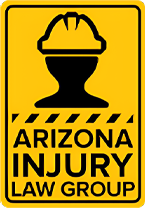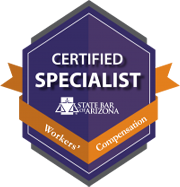Social Security Disability and Workers’ Compensation for Older Workers: When Does One Benefit Override or Supplement the Other?

INTRODUCTION
A recent case out of Tennessee highlighted several issues concerning the physical deterioration of a body part over time, that of hearing loss due to extreme shop noise. In the case of Kevin W. Taylor versus G.UB.MK Constructors in Knoxville, Tennessee, Taylor had sued for hearing loss benefits due to the loud noise heard daily in his working area. His last assigned job had been at Kingston Steam Plant in 2013, one of G.UB.MK Constructors many job sites.
One important factor, in this case, is noting exactly when hearing loss began occurring. Like various diseases, such as cancer, kidney, and liver issues, one is not always immediately aware of when these begin affecting the body. However, as soon as these health issues begin expressing themselves medically, they must be reported to the employer.
THE CASE
As a union boilermaker, Taylor was responsible for maintaining and repairing any of the boilers that were down or turned off. At the Kingston Steam Plant, for example, there were nine boilers, with eight in constant operation and the ninth boiler turned off for maintenance or repair. This was a rotation system that ensured that each boiler would receive maintenance on a regular basis, not counting for any boiler that might be shut down due to a malfunction.

The court testimony shows that in 2006, G.UB.MK Constructors had recommended that its union boilermakers wear ear protection, none was ever provided to the workers. Taylor provided his own earplugs to help with noise reduction although there were several times when he went without the protection.
After the last assigned job at Kingston Steam Plant in November 2013, Taylor could not get any other work and subsequently retired because he was suffering from physical issues with his back, shoulder, heart, and knee, making it hard for him to move around well. He was approved for social security disability for these issues, according to court testimony.
About six months later, Taylor went to see Dr. Sewall, an otolaryngologist that specializes in diagnosing and treating ailments of the ears, nose, and throat (ENT). Taylor’s hearing levels were rated as a permanent loss of hearing, with 24.4 percent in the right ear, 9.4 percent in the left ear, 11.9 percent to both ears combined, and three percent bilateral tinnitus, according to the court case.
FIRST COURT JUDGMENT
In the first hearing of the case, the judgment was in favor of Taylor and he was awarded a 56.4 percent vocational disability for hearing loss and any future medical benefits. The employer appealed the judgment and award and a new trial was set. The basis for the new trial was the employer’s claim that Taylor’s hearing loss was not primarily caused by his work environment and that Taylor did not file a claim in a timely manner regarding his hearing loss.
SECOND COURT JUDGMENT
In consideration of the circumstances, the court still awarded hearing loss benefits to Taylor but reduced the amount to 30 percent. It was also stated that the physical disabilities that Taylor had incurred, were the reason for his job loss, and not his loss of hearing.
CONCLUSION
The online case file presents more clarity on the medical issues involved, the timing of doctor visits, and the issue of not filing a claim earlier when hearing loss was first noticed. However, if one visits a doctor to have a medical issue looked at and professionally rated, then this is the first line of evidence that is necessary to successfully file for workers’ compensation.
From that point on, in the case of hearing loss, it would be essential to always wear ear protection and to have regular medical checkups to support such hearing loss documentation, especially if progressive. It would also be important to file a claim to get medical help to prevent further hearing loss.
A mention of age is included in the case which makes it difficult for older workers when society presumes that age is also a factor for an illness or disease. A likely outcome of such presumptions is that an older worker may no longer be able to find work when they have medical issues that could become worse while on the job.
If you need help with filing your workers’ compensation claim, call us at once for a free consultation. We are here to help you. 602-346-9009.
Get Help Today
Call Immediately For A Free, No Obligation Consultation And Let Us Help You Put Your Life Back On Track. Let Us Help You
Regain Normalcy And Stability Again. We Want To Help You Get The Benefits You Need And Deserve!


